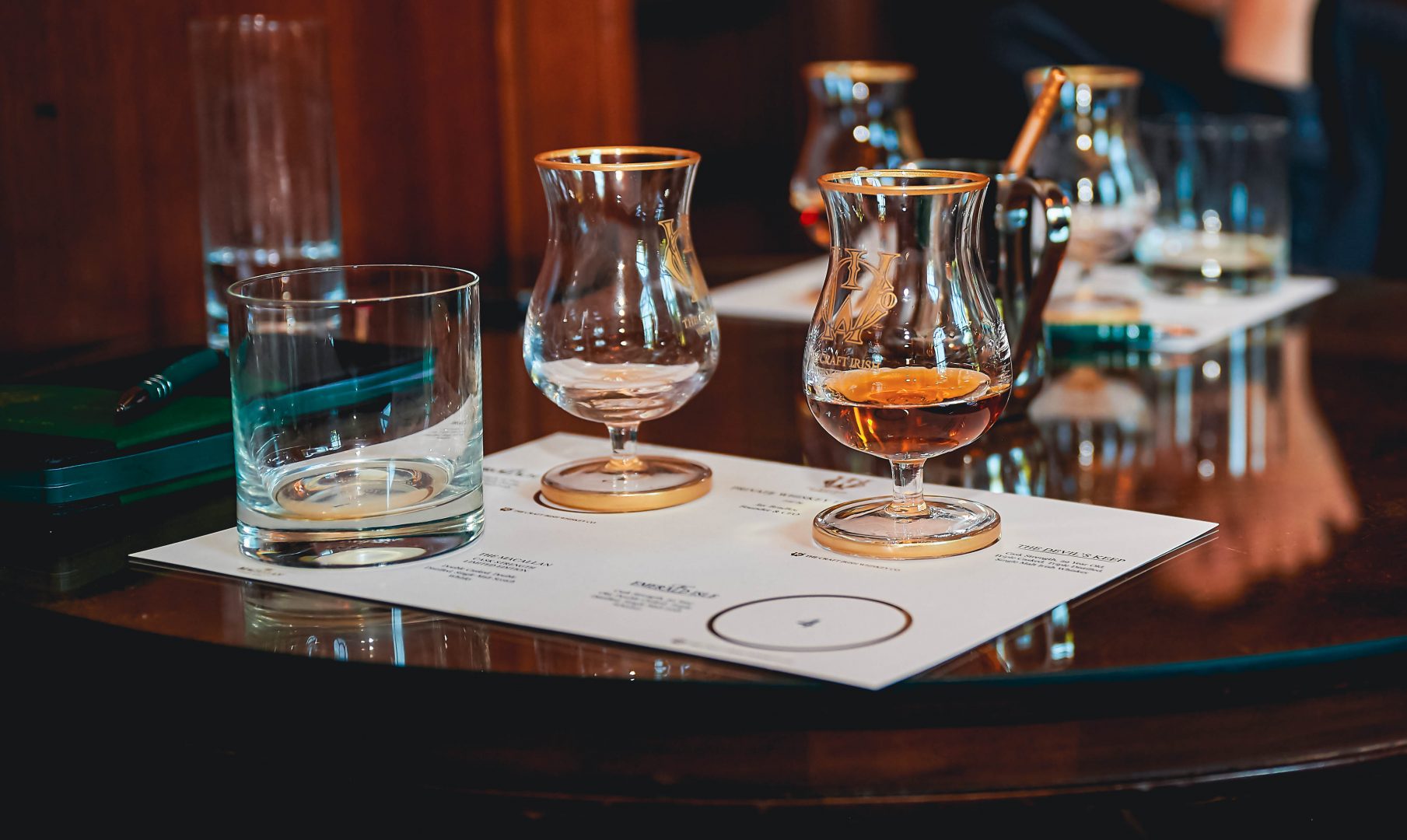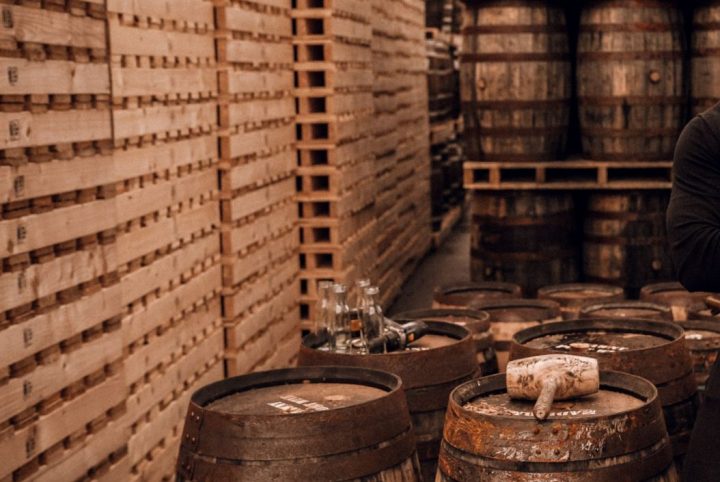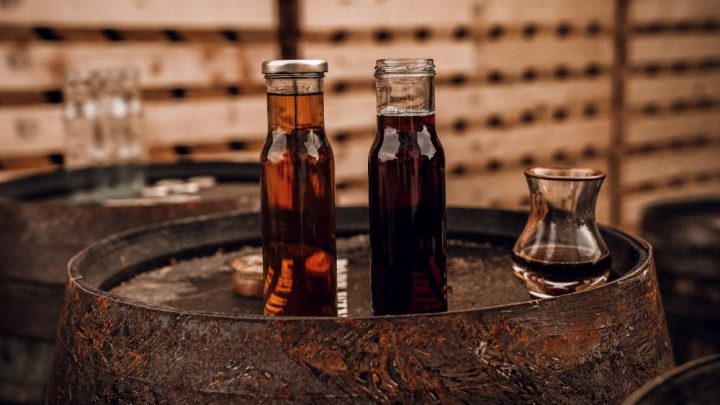
Can Whiskey Go Bad: Experts Weigh In On Expiration Dates In The World Of Luxury Spirits
Whiskey investment has never been more popular than it is today. But as it sits and hopefully accrues value, some might wonder if the liquid stands a chance of going bad. After all, luxury wine can only age for so long before it falls off in flavour. Here’s a sound scientific look at whether or not high-priced whiskey can suffer the same fate.
Does unopened whiskey go bad?
Luxury whiskey has become an increasingly tantalizing commodity among the investor class these days. And for very good reason. The ROI over the past decade has outpaced every other high-end collectible on the market. In short, whiskey investment makes sense and makes money. It also requires a fair bit of patience. While you’re waiting for those barrels of Scotch whisky or Irish whiskey to gain the wisdom of age—and accrue value—some worry that there’s a plateau to the process; that the liquid can eventually go bad. Worry not. If you’re wondering, “does unopened whiskey go bad?”, we’re here to assure you that it does not. Here’s why…
Whiskey is a distilled spirit that legally has to be bottled at or above 40% alcohol by volume (ABV). This is a considerably higher number than that of wines, which usually go into glass between 10 to 15% in ABV. The magic number to remember is 20%. Generally speaking, anything above this mark is considered “shelf stable”. That is, it won’t change if left in an unopened glass. Anything below the 20% mark is subject to spoilage. It will change, even in an uncorked bottle.
And sometimes for the better, as we see in fine wines of exceptional vintage. But even there, it’s only up until a point. The varieties most suited to lengthy aging—Italian nebbiolos, California Cabs—will start to plateau after 20-25 years in the bottle. At that point, the slow, deleterious effect of exposure to oxygen will bring the juice slowly out of balance.
How long does whiskey last unopened?
Unopened whiskey, on the other hand, needn’t worry about oxidation because its higher ABV acts as a natural safeguard. It’s exactly why expensive whiskey is ultimately a more solid investment than wine. You can hold onto it in perpetuity—and even pass down investment whiskey to the next generation as a family heirloom. With the exception of notable fortified wines like Tawny Port, Sherry, and Madeira, there is no wine that will last for centuries the way that wonderful whiskey will.
Now let’s take a look at why these various categories of booze hold such varied ABVs. The difference in alcohol percentage is owed to the process by which they are birthed. Lower-proof alcohols such as wine, beer and mead are fermented only: a sugar source such as grape juice, grain tea, or watered-down honey, respectively, are exposed to yeast, which converts the sugars into alcohol.
Distilled spirits, including Scotch, Irish whiskey, rum, vodka, gin, Cognac, etc. go through an additional step after fermentation. They are run through massive metallic vessels known as stills, which concentrate those underlying alcohols by separating out water. It’s merely an intensified version of the fermented liquid it started as. Whiskey, for example, is essentially distilled beer; Cognac is distilled wine.
Of course, there’s an additional step in the case of those barrel-aged spirits we know and love. They must spend many years patiently maturing in casks before they are ready for consumption. For Irish whiskey and Scotch, the minimum amount of aging is three years before they can be bottled as such. Most expensive whisky will spend several decades in wood. It will pick up the majority of its flavor and all of its color during this time.
And because oak is a porous vessel, filled with sugars and polyphenols, the whiskey continues to develop as it extracts more of these substances from the staves in which it sits. Not unlike the hot water slowly browning and blossoming in your teapot. Once it is removed from the barrel and bottled, however, there is no more development taking place. A snapshot of flavor occurs in this moment of bottling, wherein the producer has captured the flavor in the glass and it will stay that way indefinitely.
Until you open that bottle, that is. Whiskey can, in fact, expire if you uncork it in the glass and allow it to mingle with lots of oxygen in the bottle over time. Most whiskey scientists (yes, that’s a real job that exists) agree that an opened bottle of spirit will begin to change after around 2 years—if it’s half full; if there’s only a quarter or less left in the decanter, it can shift in flavor after just 6 months! Remember, the less whiskey in the bottle, the more oxygen that’s in there to replace it. This leads to increased opportunity for oxidization. And oxidization is what spoils an otherwise good liquid.
It might come as a shock to even seasoned connoisseurs that their opened bottles of whiskey are evolving this rapidly. But let’s not do anything brash and start chugging the remains of whatever unsealed offerings you have left in your collection. Just because its changing doesn’t mean that it’s spoiling. There’s no way your favourite whiskies are going to go rancid. They are just going to start tasting nominally different than they once did whenever you opened them. Sometimes this could mean that the vibrant dark fruit tonalities of a sherried single malt could fade. It could also mean that something that was harsher on the palate is becoming more approachable. Only your own tastebuds can make that judgment call. We’re just here to make you aware that the change is happening.
Whiskey & Wealth Club review
The fundamental truth remains that whiskey does not actually expire. It evolves. Which brings us back to the beauty of whiskey investment. Expensive whiskey goes up in value over time and never goes bad. And so the only thing you need to worry about when you invest in whiskey is that you are starting off with a great premium whiskey to begin with. That’s where a trusted and experienced partner like Whiskey & Wealth Club comes into play.
As industry leaders in both Scotch whisky and Irish whiskey investing, we have completely changed the game—delivering unrivaled results for thousands of our clients from across the globe. The success comes from solid partnerships with storied producers of spirit in both Scotland and Ireland. But that’s merely the starting point. How the casks of whiskey are stewarded after distillation is what separates a good whiskey investment from a great one. For that competitive advantage, Whiskey & Wealth Club relies on the knowledge of our founder and CEO Jay Bradley.
Bradley is a proud Irishman who grew up with an affinity for the native whiskey of his homeland. But he didn’t become a professional advocate for the liquid until reading a book called, Truths About Whisky. The celebrated tome explained how The Liberties neighborhood of Dublin—his hometown—was the global epicentre of whiskey. And how through a series of external circumstances in the early 20th Century, it lost that title to its counterparts across the Irish Sea.
It was then that Bradley set out on a personal mission to create and promote the luxury and craft side of whiskey. He immersed himself in the technical wizardry of its production, from grain to bottle. And where he really focused much of that attention was into the wonders of wood—that main flavoring component of great spirit; how a cask of whiskey is constructed, and how instrumental its composition is to the development of an unparalleled final liquid.
Irish whiskey, it turns out, is leading the charge for inspired experimentation in the world of cask whiskey. It’s a big reason why the category is the fastest growing whiskey on the planet today. Bradley is doing his part, sourcing incredibly rare, luxury barrels from remote parts of Europe; filling them with luxury whiskey and making what’s great singularly exceptional.
This is precisely what you’re buying into when you invest in whiskey with Whiskey & Wealth Club. And it’s why they’ve established themselves as the best in the business. A proven track record in generating remarkable ROI for their clients. All driven by passionate know-how from the top on down. Jay Bradley is merely the tip of the spear, but working underneath him are a team of like-minded enthusiasts who know a great whiskey when they taste it, and now a great investment opportunity when they see it. When you’re ready to invest in whiskey, they’re undoubtedly the team that you want to be directing your capital outlay.
You now know that whiskey in the cask can develop flavors and accrue value for as long as you’re willing to wait. And once it hits the bottle that greatness is preserved indefinitely. Whiskey & Wealth Club will be by your side for each step in this exciting journey. Like the liquid they represent, their level of quality never wavers. There is no expiration date on greatness.
To find out more, contact an Account Manager today on +44 203 129 1639 (UK) or +61 291 350 866 (Aus.)

